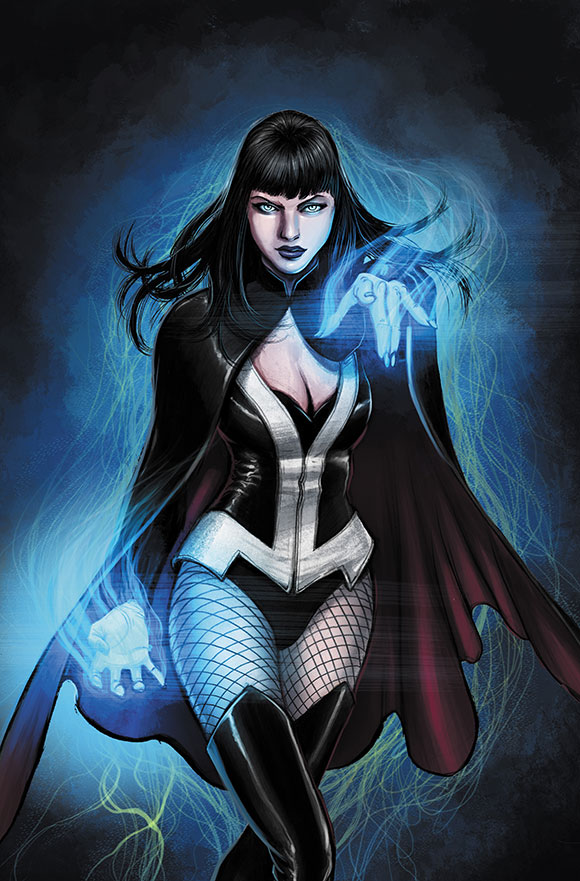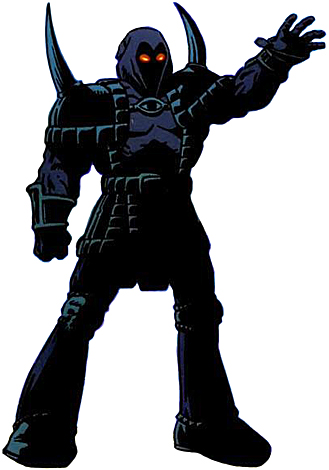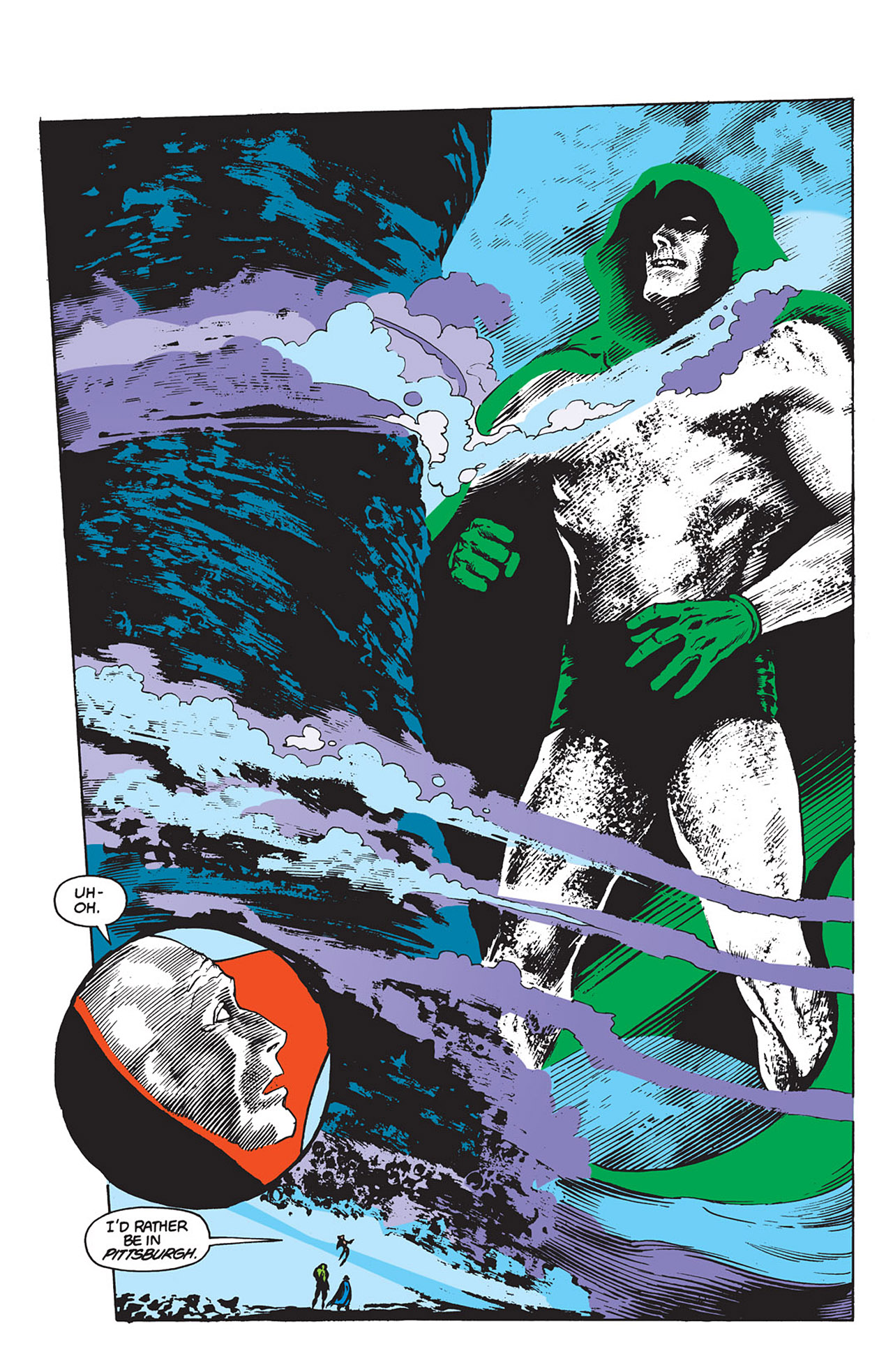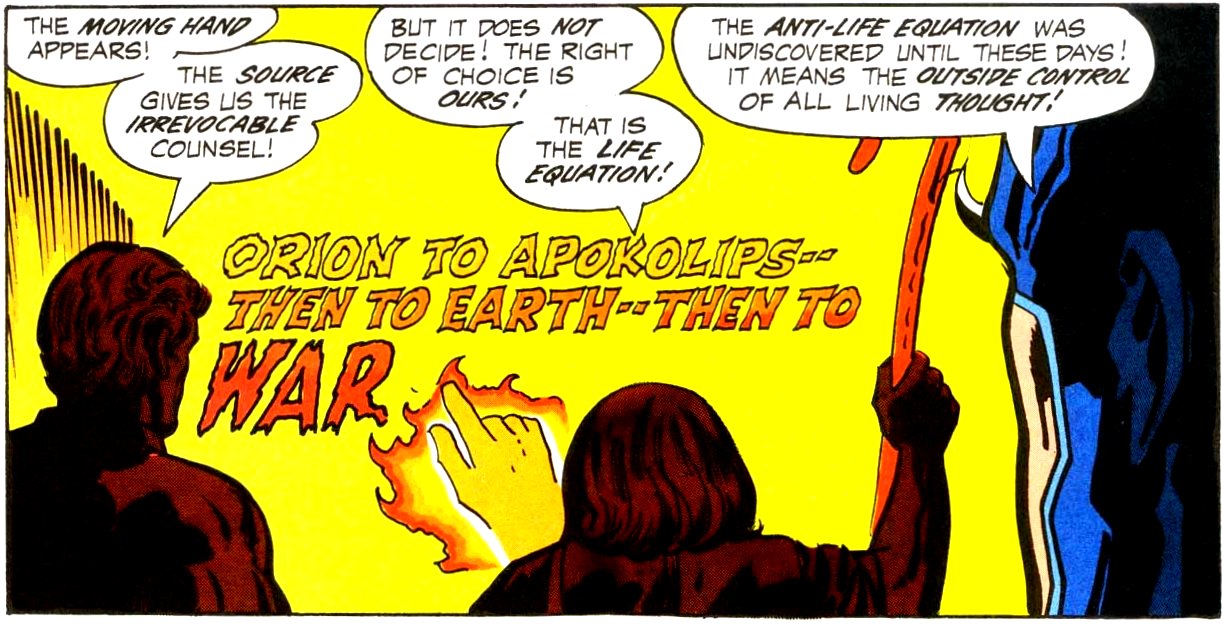This came up and as someone who has a pretty darn good grasp on DC Comics cosmology, I wanted to share my current positions on various DC Characters. I will be going over all the usual big-named characters and explaining how they relate to each other.
Let me start by saying that DC is written in various styles and their are 2 that their God Tiers are written in, and much of the confusion of how strong characters are come from comparing these two styles.
Theological/Occult: Most well known from Neil Gaiman's Sandman (Of Father Time and Mother Night are born the 7 Endless; Death and Destruction, Dream and Destiny, Despair and Desire, and of course little Delight....I mean Delirium) and Mike Carrey's Lucifer (For God's Domain is split into the two sons of God, the Archangels Michael who is the Power of God and Lucifer who is the Will of God and who together formed the cosmos), this style of DC is about Angels, Demons, Concepts, and other such Mystical Ideas. The Top Tiers here are generally ranked based on how they relate to The Presence.
Metafictional: Most well known from Grant Morrison's works (Superman becomes Cosmic Armor Superman, the Concept of Heroism to battle the Dark Mandrakk who sought to destroy the story of DC Comics), this style focuses on the 5th dimension...Hypertime, AKA the Reader's mind and the aspect of the story as story. The Top Tiers here are generally ranked based on their metafictional position in the story.
However this does not keep us from forming a cohesive internal structure of power, and if anything I think these two subtly reinforce each other.
The Presence and the Over-Void (Primal Monitor)


Discussing who is stronger between these two was what actually sparked this.
The Over-Void is commonly mistakenly called the Over-Monitor, yet I can find no official DC source that refers to it as such. It is always the Primal Monitor or the Over-Void.
From a metafictional standpoint The Presence is clearly supposed to be the writer. However it's not just any writer, when Mxyztplk meats the "Supreme Being" in Superman: Man of Steel he finds it's Mike Carlin, the writer of Superman: Man of Steel:

Yet when the writer is Grant Morrison in Animal Man.....

The Presence from a metafictional standpoint stands for the presence of the writer, who is omnipresent in a story. Every story has a "presence" to it, that Presence being it's writer, and The Presence in DC being the Presence of the DC Writers in total.
This is why more then anything else the trait of The Presence that is emphasized, even by his name is his omnipresence. It is impossible to escape his will, which is the driving force of Lucifer Morningstar's character, because he is everywhere:


The Power of the Presence, Michael Demiurgos is needed to maintain every atom of it's existence.

As you can tell, The Presence theologically is the "God" of the DC Cosmos. He is the Creator and the Supreme Being.
"Now what does the Primal Monitor represent metafictionally? Grant Morrison Explains:
What happens if the page
is a bit pissed off at the story that’s drawn on it? So I thought of the page
as God. The idea being that the Overvoid – as we called it in Final Crisis - of
the white page as a space is sort of God. And it’s condensing stories out of
itself because it finds inside its own gigantic white space, self-absorbed
pristine consciousness, it finds this little stain or mark, this DC Multiverse
somebody has 'drawn'. And it starts investigating, and it’s just shocked with
what it sees, with all the crazy activity and signifying going on in there. It
then tries to protect itself from the seething contact with 'story' and
imagines a race of beings, 'angels' or 'monitors' (another word for angel, of
course) to function as an interface between its own giant eternal magnificence
and this tiny, weird crawling anthill of life and significance that is the DC
Multiverse."
In other words, it represents the blank page, the infinite possibilities. It is that which is not which perceives that which is, in confusion.
You might be surprised but it actually does have a theological equivalent. It's called Mother Night, the empty blackness from before creation
Here is a description of Mother Night from her son Dream
Now theologically, it doesn't make sense for a being to be stronger then The Supreme Presence, though there is no direct comparison of power between The Presence and Mother Night.
However as shown in the above depiction of Michael's power, should the power of the Presence cease to exert on the cosmos, it would disappear again into Mother Night suggesting that the Presence is maintain the Cosmos against her will.
Metafictionally we have something similar that pretty much cements Presence is stronger then Over-Void
So when Over-Void tries to consider Creation and study it, it's part, The Monitor is split into 2
Despite it's immense size, The Primal Monitor cannot understand Creation, cannot existence. The Presence imposed it's will on the Void, and the Void responded.
To me it seems pretty intuitive that the writer is stronger then the paper they wrote upon, and DC comics seems to support this view.
Let's quickly overview some other big names you may have heard being tossed around:
The Archangels (Michael Demiurgos and Lucifer Morningstar):
These Two are the strongest beings in Creation itself (before Elaine). Michael is God's Infinite Power, able to create infinite energy and reduce things to complete nothingness, but has no will as represented by him viewing himself as merely an extension of The Presence. Lucifer is God's Infinite Will, able to transmute anything into anything but has no power, no ability to create or destroy, represented by his realization that everything he does is predestined and he has no ability to really cause things to happen.
Together they have powers equal to The Presence himself:
Synnar:
Synnar has the title of "Demiurge" the same title as Michael. This is because he basically served the same role as Michael but is from the First Age (Lucifer and Michael are from the Fourth Age, the current one). He's about as powerful as Michael, although where Michael doesn't have a will, he seems to lack a brain ;) Sorry, just a joke.
Elaine Belloc:
Elaine is a little girl who is also the daughter of Michael Demiurgos and inherited her father's power. Not kidding. Then Lucifer gave his beloved niece HIS power too. So now she's basically as strong as The Presence, albeit not as experienced at all, nor does she have his omnipresence for some reason. It's implied she may become The Presence of the Fifth Age, representing the writers of DC Comics' future.
Great Evil Beast (GEB):
The Great Evil Beast is the dark opposite of The Presence, from an occult standpoint the Yin to his Yang, equals which define each other. Just as you can't have North without South, Cold without Hot, etc. you can't have light or darkness without each other.
GEB most notably defeated all the Angels at once and it meeting the Presence threatened to destroy all creation.
The Presence though saved the omniverse and all creation by absorbing and assimilating with GEB, so that light and dark existed in all things. This is part of a larger thematic point in DC Comics of abstract concepts defining their opposites. The Sandman is a great example of this.
DC Brother:
(DC Brother is the Blue One). Basically the DC Creation, animate. Appeared in Marvel vs. DC. Pretty Big Name though not actually the strongest in the same way that a living universe wouldn't be the strongest if there was universe busters inside of it.
Kismet:
The Main DC Universe. She is alive. She is a Lord of Order and like all lords of order has a champion just as Lord of Order Nabu has Champion Doctor Fate. Her Champion is Superman.
The Source:
The Source is one of many many aspects of The Presence, the most well known. The Word, The Voice, etc. are other aspects.
Empty Hand
One of the latest DC Cosmics, Empty Hand is a villain from Multiverse-2 (which it destroyed) that has the power to manipulate the 5th dimension, living inside the mind of the reader and using that to manipulate it's world. Think of it as a meme gone wrong.
There's a lot of DC Cosmics, these are just some of the big names you've probably heard being thrown around.























